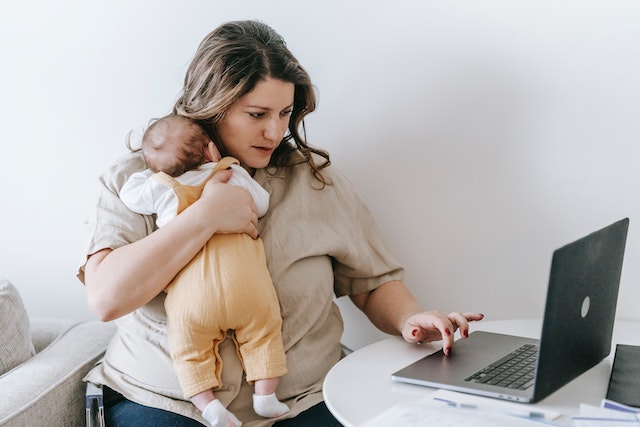Effective Conversation— Meaning, Skills, and Tips ALL explained
According to Statista, in 2019, conversational skills were the most significant for nearly 70 percent of Polish people learning English. Despite the importance of effective conversation in our personal, social and professional lives, many still find it hard to initiate and sustain good conversations with people.
Have you ever felt helpless in the middle of a conversation? Are you afraid or unsure of how to start a conversation with a stranger? Or you’re still trying to figure out the best ways to improve your conversational skills?
In this article, we shall be exploring:
- Meaning of Effective Conversation
- Effective Conversation Skills
- Types of Effective Conversation
- Tips to Improve your Conversation skills
- Common Barriers to Effective Communication
Meaning of Effective Conversation
Effective conversation is the process of exchanging ideas, thoughts, messages, and information between the parties involved efficiently and suitably.
It can also be called effective communication. Thus, in this article, we shall use both communication and conversation interchangeably.
You’ll agree that nearly everybody, both small and big, young and young, engages daily in tons of conversations. But then, just a handful of these conversations can be seen as effective. Why?
Everybody communicates, but only a few people have the required conversational skills for effective communication with others. It may be your dad, mother, sibling, a friend in your neighborhood, your colleague at your place of work, or a business associate.
Effective Conversation Skills
There comes a point in one’s life when one becomes ready to break the ice in the way one interacts with those not too close.
And that may mean having to learn the fundamental skills of conversation that can allow you to communicate effectively with anyone at any point in time.
Interestingly, learning these skills is not as hard as some people have painted it. However, that is not as easy as you may have thought it to be.
Developing conversation skills is just like developing new habits, which do not become part of you after the first 20 minutes or a day of practice. In any case, you can surely improve them by practicing.
But how can one improve something one doesn’t know? On this note, the following are the skills that you need to improve your conversions and make your communication with others highly effective:
1. Active listening
In this present age, many are quick to talk and not listen. But to achieve effective communication with others and in business conversations, you need listening skills. Yes, not ordinary listening. But active listening– is the ability to pay your full attention to the communication process and the other party with whom you’re conversing.
That is listening with your whole mind and body. Therefore, you take time to hear and absorb whatever you’ve heard from your conversational partner since you understand that communication is a two-way process. So without getting what has been said to you by the sender of the information, no communication has occurred
2. Non-verbal communication skills
Communication is beyond the words we speak or write down on paper. And that’s the reason you need non-verbal communication skills to get the best out of a conversation.
In other words, you must be able to grasp non-verbal signals such as eye contact, tone of voice, movement and posture of the hand, arms, and legs, facial expressions, and silence. Understanding these body languages will allow you to achieve effective interpersonal communication with others.
3. Question asking
Asking questions during a conversation with someone doesn’t only sustain the interpersonal communication but tells your conversational partner the level and nature of your interest in the conversation. It is a skill anyone needs for effective communication.
People who are good conversationalists amazingly employ open-ended questions (using words like what and how) to sustain meaningful communication with any person, anywhere, and at any point in time.
4. Ability to use simple and plain language
In a communication process, the parties involved are very active. One is speaking while the other(s) is listening carefully. Thus to achieve effective conversations, you must learn and do what great communicators do in every conversation they engage. And that’s speaking without ambiguity.
In other words, you must learn to use words, expressions, and language and be concise enough not to leave the other party in confusion.
5. Summarizing skills
The skill of summary is an excellent communication skill linked with the question asking and providing feedback. However, summarizing skill is the ability to carefully and clearly articulate your thoughts after listening to your conversational partner for a while. Through this skill, you let the other person know that you’ve been actively listening throughout, even as you try to clarify some facts or things you need your conversation partner to shed light on.
6. Empathy
You may see being empathetic as a virtue. But in reality, beyond being a virtue, empathy is a social skill or quality that you need to be able to have an effective conversation with your people at home or team members at work.
When you are empathetic in interpersonal communications, you position yourself to better comprehend and relate to people’s feelings, emotions, and thoughts. In other words, even if many may not want to admit it, an unempathetic fellow, consumed by self, often encounters difficulty effectively communicating with others.
Types of Effective Conversation
There are many ways and formats we exchange our thoughts, ideas, and other pieces of information with others. And some are a bit traditional, while others are far more modern and civilized. For example, today, business communication in the corporate world is done through digitized formats and traditional methods. You talk of print media, videoconferencing, and emails, amongst others.
But in this article, we consider the four common types of communication that are effective in their unique way. They include:
1. Verbal Conversation
Verbal communications are conversations that adopt the usage of words. They can occur face-to-face, via the telephone.
Therefore, verbal communication usually involves the voices of people, and it can also be called oral communication.
During the recruiting process, employers use this method of communication to interview their applicants because they find it efficient and effective. And like I said, oral communication may involve physical contact or not. But, usually, many people prefer the one that involves physical connections, as it gives them room to study the body language of others.
To better buttress this point. Imagine a person who wants to buy a house worth over $2Million. Do you think this buyer would prefer to close the deal with a realtor over the phone to have face-to-face verbal communication? I’m sure you know what the buyer would opt for. After all, buying such a landed property isn’t the same as surfing Amazon or Barnes & Noble to get an ebook worth less than $50.
2. Written Communication
Many business communications that occur in the work environment are written communication. And they include all exchanges of ideas, news, or information done traditionally or electronically.
In other words, written communication consists of paper and pen, emails, typed electronic documents, reports, letters, written proposals, etc.
3. Nonverbal Communication
Nonverbal communication is people’s behaviors during a conversation or communication, which their words lack the strength to capture. They include gestures, body language, voice tone, and facial expressions. And interestingly, some of them are intentional, while others are unintentional.
True, the non-verbal cues you get during a communication process are priceless. They speak volumes about the feelings, emotions, state of mind, and intentions of the person or group you’re conversing with. And every so often, they speak louder than their actual words,
For example, assuming you’re communicating with someone that’s beginning to yawn, you don’t need a soothsayer to tell you that your conversational partner is probably becoming disinterested in the conversation. Or perhaps, feeling exhausted and stressed out and craving a nap or quality sleep.
4. Visual Communication
Visual communication is a method that somewhat appeals to our sense of aesthetics and logic. It uses pictures, drawings, diagrams, graphs, charts, and sketches to convey important information in a detailed and concise manner in the best possible way.
Therefore, during a seminar or a workshop at your place of work, you can decide to use visual communication. That is to convey valuable facts (and information) about a business situation or opportunity in a graphical or pictorial format to your superiors or those present using computer software like Microsoft PowerPoint, or the like.
Effective Conversation: 7 Tips to Improve Your Communication Skills
Now that you’re knowledgeable of the essential skills for effective communication, you are almost on your way to improving your conversation skills. And to achieve success in your business conversations with your colleagues at your place of work. Be it with superiors and subordinates– or even your clients if you’re a business owner or freelance like myself.
But before I start sharing these tips with you, note that you only get better at conversations (any type) through practice. Yes, you heard that.
Practice! PRACTICE!
Effective Conversation Tip #1:
Don’t be in a hurry to talk. Instead, listen more actively, as it will help you make reasonable contributions when it’s your turn to speak.
Effective Conversation Tip #2:
Pay close attention to nonverbal cues. This will require you to be observant and alert. Meaning you must use your whole body and heart in the communication process.
Effective Conversation Tip #3:
Ask meaningful questions during the conversation. Remember, they should be open-ended questions and not close-ended questions which usually earn you single word responses such as “okay,” “fine,” “alright,” etc. And responses like this kill conversations and make them less fun, uninteresting, and ineffective.
Effective Conversation Tip #4:
Apply Humor. I mean, everybody likes to converse with someone that is reasonably humorous. That’s because there’ll always be a genuine reason to smile and laugh from time to time. However, knowing the uniqueness of the setting and the person you’re communicating with will help you stay checked and not go overboard.
Effective Conversation Tip #5:
Treat people with respect and an open heart. Through this, you not only win the confidence of the other person. But you’ll make the person replicate the same energy back to you. And ultimately, you stimulate trust and rapport between you.
Effective Conversation Tip #6:
Be deliberate about giving and receiving feedback. By practically learning and applying this tip, you’re on your way to becoming the next Dale Carnegie of our time— one of the great communicators in the history of America.
Effective Conversation Tip #7:
Take the golden principle of interpersonal relationships to heart. And it says, “Do to others what you would have them do to you.”
Common Barriers to Effective Conversation:
There are lot of hinderances to effective communication, both in formal and informal settings. Some of the include:
1. Emotional barrier
The emotional state in which a person is can affect how he would communicate to you. For instance, a person who’s tired and feeling sleepy will not hear whatever you have to say to him. The same applies to a person having a terrible day at work. Therefore she may not be in the right frame of mind to engage with you in an effective conversation.
2. Use of Jargons.
The word jargon is technical itself, and it means unfamiliar words that are somewhat complex to grasp at a go. But unfortunately, a lot of people kill the chance of having excellent communication with others by using jargon, either orally or in writing. Thus, they succeed in putting the other person in a box of confusion, trying to crack out what a word or expression they have used could mean.
3. Personal and Cultural sentiment
Cultural beliefs and personal sentiments affect how people behave and how they relate to others. Either to those near to them or total strangers. And sadly, this is a common barrier to effective communication.
Anyhow, as some desire effective conversations with people, you need to be diplomatic, discreet, and temperate in how he deals and communicates with others, even in business conversations.
4. Language difference
Thank goodness to technologies like Google translate in alleviating the issue of language difference as a common barrier to effective communication. But then, there would always be language differences around the globe. And one would always have to put up with it, especially when trying to achieve excellent communication with a person, client, or business associate in a foreign land that speaks a different language.
5. Prejudices and stereotyping
Sadly, these exist even in homes. Even among people that are related by blood. So how much more in a business environment where office politicking is at pick? However, it is what it is. A common barrier to effective communication.
6. Conflicts in the Workplace
Indeed, conflicts are always bound to happen. But the question is how swift the parties involved can resolve? No doubt, conflicts are bound to occur in a work environment. For different reasons, and often impedes the flow and how effective conversations in a business are.
7. Lack of Transparency and Trust
Naturally, communication becomes effective in the presence of trust and transparency. But when absent, the reverse is usually the case.
For example, you have a colleague who you think is dishonest and not straightforward in his dealing and can always make things go sour. Wouldn’t you be anxious and have your reservation about initiating a conversation about important subjects that require trust and transparency?
Conclusion
So far, you’ve grasped what effective conversation means, the essential skills you need to communicate effectively with others, and the types of effective communication. Also, you learned about some of the common barriers you may encounter when initiating and maintaining effective conversation with your colleagues at your workplace.
Best of luck in your journey to becoming a better conversationalist! Meanwhile, if you have something to say, you can use the comment section.








